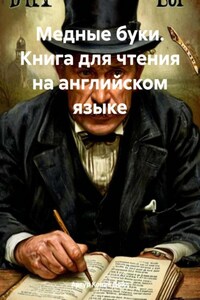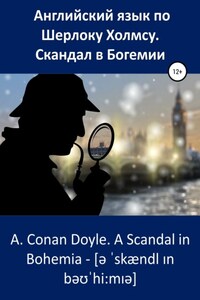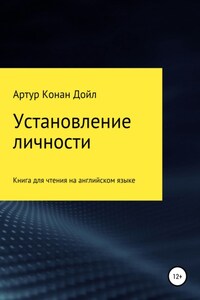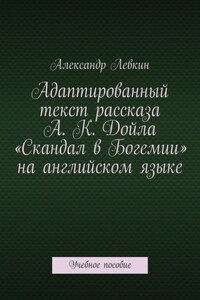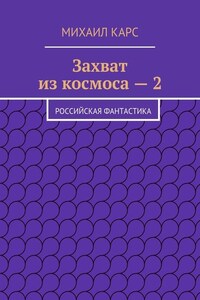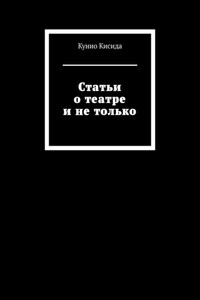Книга предназначена для изучающих английский язык с использованием текста произведения зарубежной классики, его транскрипции и соответствующей аудиокниги, озвученной носителем языка.
Для подготовки книги использована бесплатная электронная книга с публичного сайта Project Gutenberg и бесплатная аудиокнига с публичного сайта Librivox, озвученная носителем языка (David Clarke). Транскрипция, записанная символами международного фонетического алфавита, выполнена с помощью онлайн-переводчика английского текста в транскрипцию— toPhonetics компании Mu-sonic Ltd. Соответствующие ресурсы приведены в разделе "Использованные источники".
В данной книге приводится транскрипция текста рассказа А.К. Дойла «Медные буки» на английском языке. Текст рассказа разбит на небольшие фрагменты. Фрагменты пронумерованы порядковыми номерами (01, 02,…,42). После номера фрагмента приведены время начала и окончания аудиозаписи текста фрагмента в аудиокниге. Для каждого фрагмента подготовлена транскрипция текста, оформленная в виде иллюстраций с изображением транскрипции текста фрагмента.
Таким образом, чтение рассказа производится с «подсказками» в виде транскрипции и прослушиванием аудиокниги.
“To the man who loves art for its own sake,” remarked Sherlock Holmes, tossing aside the advertisement sheet of The Daily Telegraph, “it is frequently in its least important and lowliest manifestations that the keenest pleasure is to be derived.
It is pleasant to me to observe, Watson, that you have so far grasped this truth that in these little records of our cases which you have been good enough to draw up, and, I am bound to say, occasionally to embellish,
you have given prominence not so much to the many causes célèbres and sensational trials in which I have figured but rather to those incidents which may have been trivial in themselves, but which have given room for those faculties of deduction and of logical synthesis which I have made my special province.”
“And yet,” said I, smiling, “I cannot quite hold myself absolved from the charge of sensationalism which has been urged against my records.”
“You have erred, perhaps,” he observed, taking up a glowing cinder with the tongs and lighting with it the long cherry-wood pipe which was wont to replace his clay when he was in a disputatious rather than a meditative mood—
“you have erred perhaps in attempting to put colour and life into each of your statements instead of confining yourself to the task of placing upon record that severe reasoning from cause to effect which is really the only notable feature about the thing.”
“It seems to me that I have done you full justice in the matter,” I remarked with some coldness, for I was repelled by the egotism which I had more than once observed to be a strong factor in my friend’s singular character.
“No, it is not selfishness or conceit,” said he, answering, as was his wont, my thoughts rather than my words. “If I claim full justice for my art, it is because it is an impersonal thing— a thing beyond myself.
Crime is common. Logic is rare. Therefore it is upon the logic rather than upon the crime that you should dwell. You have degraded what should have been a course of lectures into a series of tales.”
It was a cold morning of the early spring, and we sat after breakfast on either side of a cheery fire in the old room at Baker Street. A thick fog rolled down between the lines of dun-coloured houses, and the opposing windows loomed like dark, shapeless blurs through the heavy yellow wreaths.
Our gas was lit and shone on the white cloth and glimmer of china and metal, for the table had not been cleared yet.
